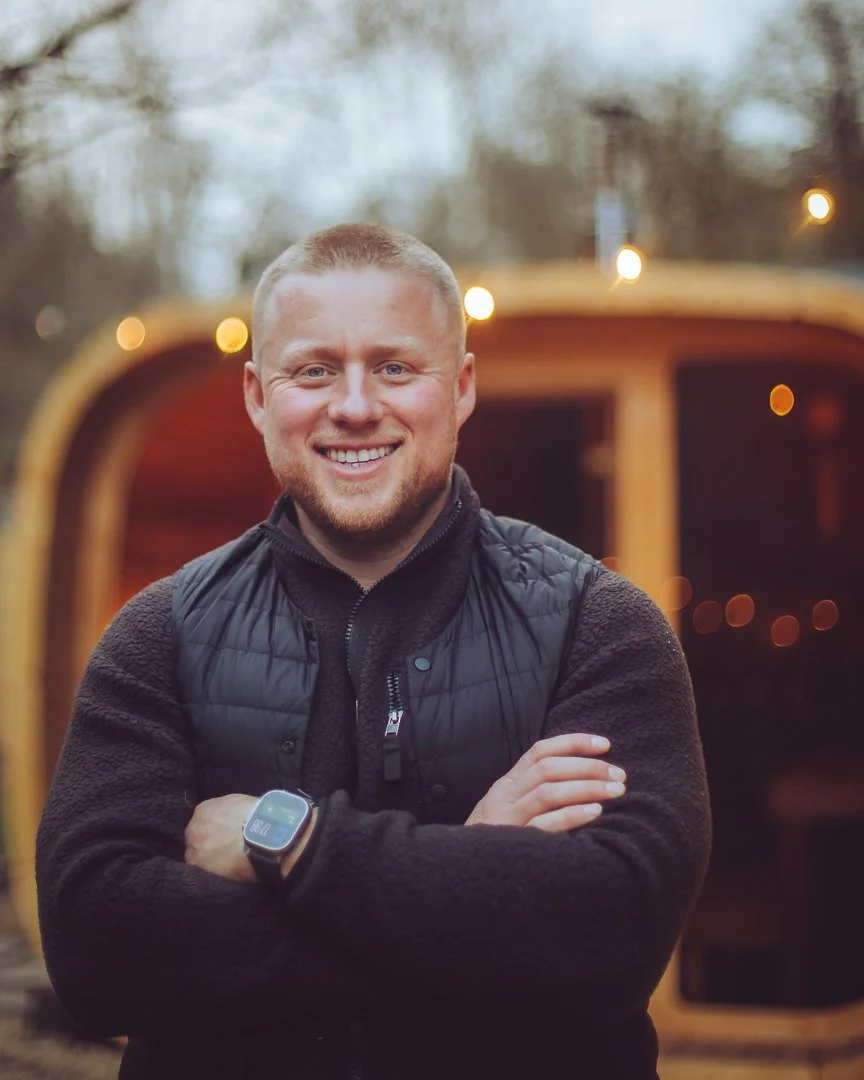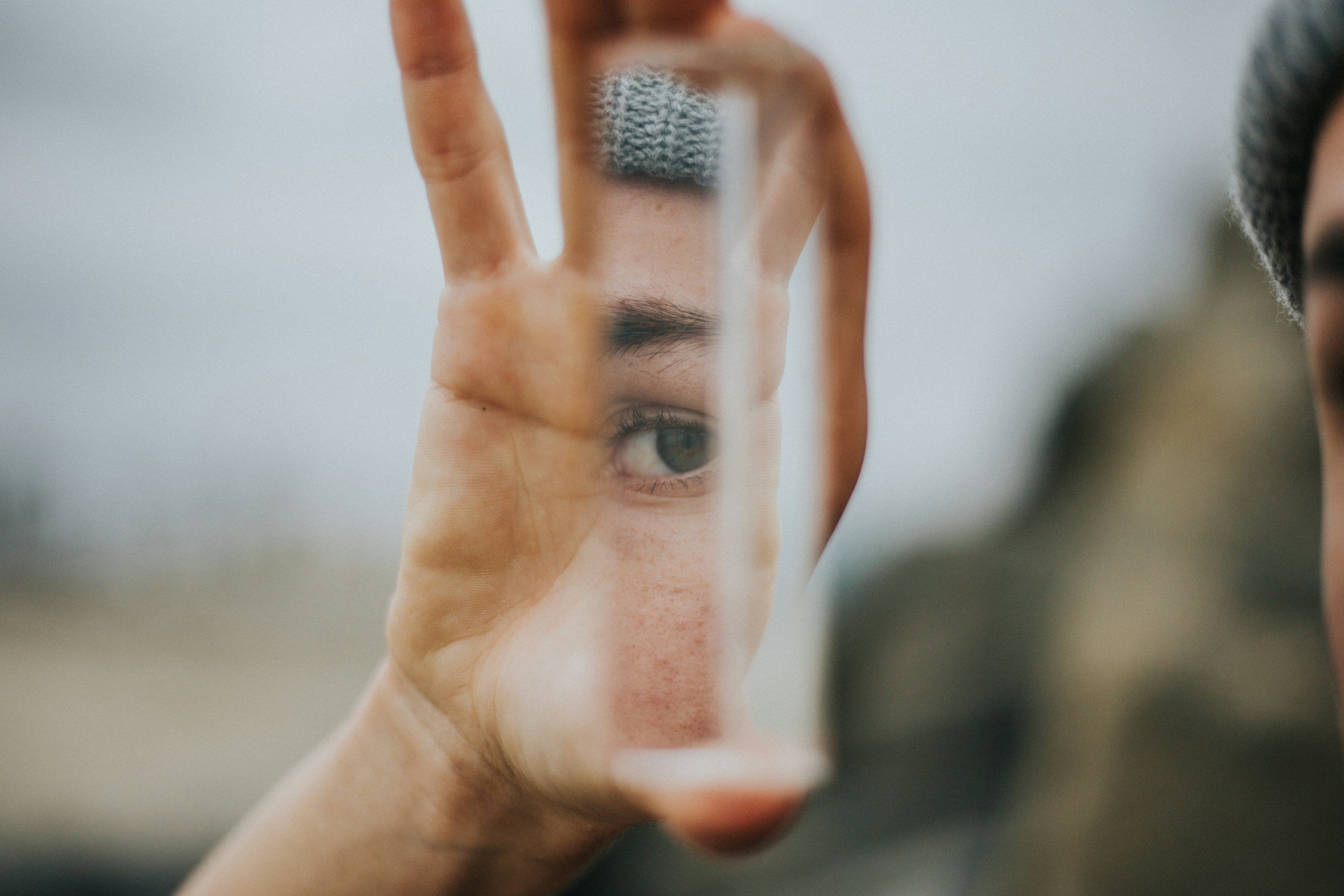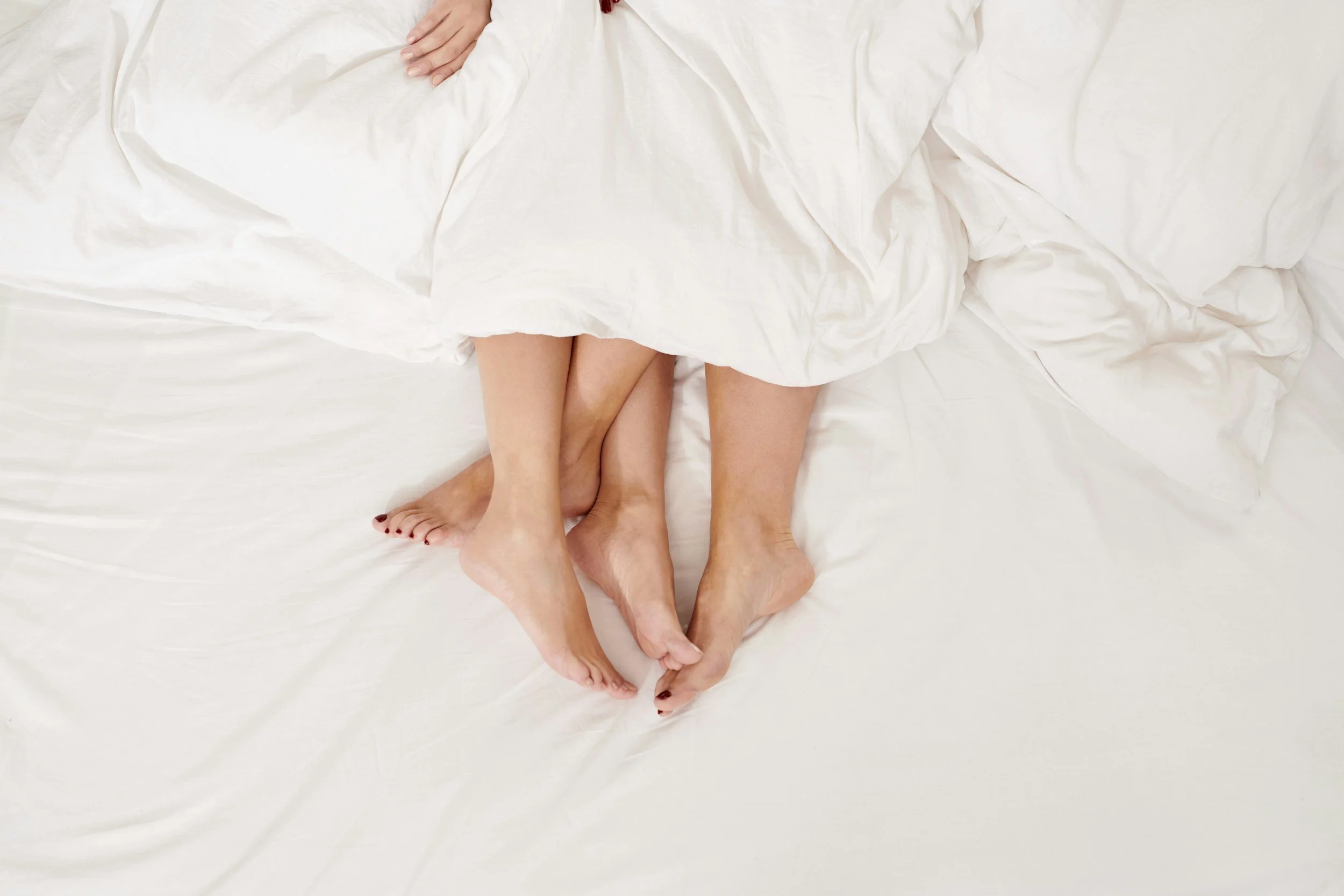“We could also put some Botox above the brow… just to plump that area up.”
“I see you’ve got quite heavy eyelids.”
“And the dimple in your chin, it’s alright now, but as you get older…”
“Salmon sperm ssalmonnnnn spermmmmm ssssalmonnn spermmmmm.’’
I had traded in one insecurity for about five others. Not exactly a fair exchange.
Nestled in what used to be the wildlife park in Westbury, they have created the most zen, most beautiful atmosphere you could wish to find. No matter the time of day you go, you find yourself in a haven. To reach the site, you walk past a babbling stream with trees overhead. The facilities themselves are top notch - and unique. (One of the cold water options is what used to be the seal pool, now much cleaner and san-seals obviously.) The staff are genuine and lovely. The health benefits are unreal. What’s not to like?
I’m not a body-advice writer. I’m not an advice writer at all. I’m simply someone trying to tell the truth about what it’s like to exist with body dysmorphia in a world that profits from your discomfort — especially now, when we’re being told that body positivity is dead and shrinking is back in fashion. Something sharp moved in me when I read that headline; not because I care about celebrity weight cycles, but because I’m living inside a body shaped by trauma, grief, stress, neurodivergence, and survival — and I’m still being asked to make myself smaller.
Aside from accounts directly promoting disordered eating, TikTok has seen a surge of ED ‘recovery’ accounts, with creators sharing their lives and, therefore, illness, online. The vast majority of these accounts claim to be there to display their journey to recovery, hold themselves accountable and to ‘inspire’ and ‘help’ others.
My therapist shared that she’d recently trained in it and had it herself. Swore by it. So I did what most people do when presented with something to ease suffering. Sign. Me. Up.
Four months after working in recruitment, I had to admit three things: I did not like my job, I was burnt out, and I really, really, really wanted to quit. My colleagues were supportive; I did not want to leave. I wanted to brave it and make the most of the opportunity in front of me. However, midway through the fifth month I had a complete mid-20s crash out and thought “no more!”.
The beauty industry is ever evolving into something more dystopian than before, and nothing supports this more than Skims' new shapewear…for your face. It does beg the question, what on earth is going on here?
The current narrative around birth serves no one, with almost half of mainstream maternity units being rated inadequate or requiring improvements, with national headlines showcasing that approximately 30,000 women a year leave their experience with trauma or PTSD (Birth Trauma Enquiry 2024). It creates a mechanism of fear that has many just grateful they have themselves and a baby at the end of it. Yet, women deserve to know that there are practitioners who see pregnancy and birth as normal life events that require skilled support, not medical management, who are safe, trained and experienced in this space and want to provide choices and alternatives to the mainstream measure of childbearing.
If you get married, you and your partner are then viewed almost as one person, including that of your income. That will oftentimes then lead to your income and your benefits becoming intertwined with your partners’. If you’re a disabled person and you marry an able-bodied person, one who works a qualifying significant income, the disabled person in the relationship will likely lose their benefits altogether. If you live outside of the UK, not only are you left with the strict laws on benefits causing issues, but also your access to healthcare, such as insurance.
Anxious thoughts ran through my head as my laptop mouse hovered over the “proceed to check-out” button. There I was, panicking about buying a walking stick with my disability money… which is exactly what it’s for. But after reading the news, it’s no wonder I was so worried. All I could see and hear was the threats of benefit cuts from a government using disabled people, who are just trying to survive, as a scapegoat.
In March 2025, The Independent reported that schools across the UK will begin offering anti-misogyny classes in schools. Far from being an overreaction, the government proposed initiative is a necessary response to increasingly troubling cultural shifts taking place in schools and wider society.
And here-in, I feel, may be the issue and the answer.
From periods, to pregnancy, to menopause, we have to get SO used to our bodies and our hormones knocking us sidewise. But there’s the crux: we do get used to it. There’s no light at the end of the tunnel here. This just feels like the cards you’re dealt if you’re born into a female body at birth. What’s the point in complaining about it? What are you gonna do? Not work every time your uterus decides to shed? If you’ve got generational wealth - maybe. Otherwise, not an option. You crack on, and you shut up.
And here-in, I feel, may be the issue and the answer.
Whilst a wedding is potentially a joyful occasion, for some it can become a real challenge - and I am not talking about the headache-inducing conversation with the printers; the months spent trying to source the perfect pair of bridal shoes or getting the recalcitrant photographer to respond to emails. I am talking about the painful business of those who are estranged from family members and whether to invite or not invite them.
Oh, how to be a girl in your twenties. Dancing the night away. Dressed to the nines. Hanging out with your friends…That’s what we picture right?…
How far from the truth this can be.
Research by Pregnant Then Screwed found that over half of all mothers - 52% - have faced some form of discrimination when pregnant, on maternity leave or when they returned. 1 in 5 mothers have left their job following a negative or discriminatory experience. And, disgustingly, 1 in every 61 pregnant women say their boss suggested they terminate their pregnancy.
Did you know that 1 in 100 of those who are assigned female at birth will go through recurrent pregnancy loss (RPL)? In the United Kingdom, a recurrent pregnancy loss is when someone who is AFAB goes through 3 or more pregnancy losses (with or without a successful pregnancy between the losses).
When you start trying for a baby, you don’t ever think that you’ll become part of that 1 in 4 statistic, and you definitely don’t expect that you’ll become part of that 1 in 100 statistic.
When did our internal monologue suddenly adopt a no-nonsense, authoritarian approach rivalling the Wormwoods? Why do we become self-flagellating adults who berate themselves for every little misstep?
When I got in the room I was told to sit down and then a couple of nurses came and got me. They pulled back the curtain that wrapped around the bed she lay in. I saw the redness of my partner’s face, the wet around her eyes. I asked ‘What’s happened. Did it hurt?’
And she said ‘no, but they think I have cancer.’
When I became disabled, one of the things that I struggled the most with was just how much my life changed, practically overnight.
It wasn't just that I was adapting to no longer being a healthy, able-bodied person, but I was also suddenly transitioning from being able to do so much, so easily, to having a mountain of access needs that had to be fulfilled in order for me to do anything.
You’ve been with your partner for a long time, but your sex life has been dwindling. Weeks turn into months of no sex and you’re starting to wonder what you’ve done wrong. I’m here to tell you that you’re not alone.
According to this article from the BBC , “Data from Statista shows that the baby and child skincare market is expected to experience an annual growth rate of about 7.71% until in 2028, it reaches $380m (£299m) in market volume worldwide…This isn’t just about young kids trying their mums’ creams, but an industry expanding to reach a broader age spread of consumers.”
The game slowly defrosted my hibernation and resuscitated my ‘spark’. It provided me a safe space to practise my speech, to train my ability to concentrate, remember details, and untangle the messy earphone cables of thought that made up my mind; to not think about what I couldn’t do but to test the limits of my imagination, which, as it turns out, now feels pretty limitless.
Those first few weeks, even months, are so special. You and your partner are just in your own little bubble with this gorgeous little baby that you have spent months waiting for. Nothing can compete with those first moments; watching their hair grow, those first sparks of a personality. But what most aren't prepared for, like myself, is when ‘the bubble’ pops.
Picture this: you’re finally pregnant and expecting your first child after years of people extolling the virtues of having children. Suddenly, the narrative is flipped, it’s no longer the best thing to ever happen to you. Unfortunately, you are now doomed to live a joyless life of servitude to said child. It almost feels as though you have been duped, scammed into some sort of parenthood pyramid scheme from which there is no escape.
Figures suggest that in the UK, 76% of 15-24 year olds that are active online are using the video-sharing app. Across the pond, it's thought that 25% of US users are under 19 years old. Evidently a huge market for retailers to target.
The current system for diagnosing breast cancer is the mammography screening program, which invites women for an X-ray scan of their breasts once every 3 years after they turn 50, until the age of 71. At first glance, this seems entirely logical. The system has been in place since 1988, it must be effective. But why are so many women dying of breast cancer? Why are their tumours not being found earlier?
Season 14 of RuPaul’s Drag Race has been rightly celebrated for its trans representation. In addition to the series’ laudable trans representation, this latest season has also featured two neurodivergent queens, as Jasmine Kennedie and Orion Story have both revealed (since filming the show) that they have been diagnosed with ADD and ADHD respectively.
It is the day of my tahoor, or purification; it is the day that I am to be cut. I am feeling joyous but slightly nervous (and a different feeling I couldn’t quite categorise) about the occasion: the communal ritual which will, in my eyes, make me a woman!




























